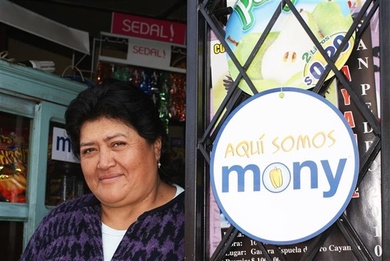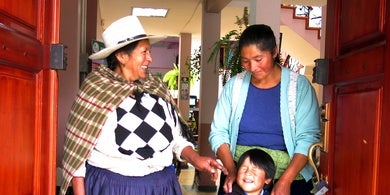
Overcoming stereotypes could save your business
By Susan Olsen, Lead Specialist, Opportunities for the Majority, IDB Difficulty accessing financing, poor infrastructure and incapacity to scale are cited as reasons why businesses that target the (BOP) fail. Yet, an unwillingness to overcome base of the pyramid stereotypes could easily be the most important explanation as to why some BoP-focused companies aren’t successful. Shattering stereotypes before starting an inclusive business model was the basis for a provocative panel that took place during the Inter-American Development Bank’s BASE III Forum in Mexico City.

Improving effectiveness of development cooperation and the role of private sector
By Ichiro Toda Many collaborative efforts are underway to bring public and private development practitioners together to strengthen development effectiveness. The push for more cooperation began in November 2011 when the global development community, including the IDB, agreed to the Busan Partnership for Development Effectiveness. The principles in the agreement promote enhanced country ownership, results measurement, inclusive partnerships, transparency and mutual accountability in development work. Recognizing the central role of the private sector, the Busan final document encouraged efforts to:

Corporate social innovation is the new corporate social responsibility
By Elizabeth Boggs Davidsen A new trend in international development has paired some unlikely business partners: development finance institutions and impact investors are working with large multinational corporations to fund projects that advance both development and business agendas.

Transformation of banks to reach unbanked: Cases from Jamaica and Paraguay
By Tomas Miller and Veronica Trujillo There have been remarkable advances in the role of banks in financial inclusion and development in Latin America and the Caribbean as measured by various indicators (access to bank accounts, supply of credit, insurance for micro and small enterprises, and availability of customer points of service) compared with levels in the previous decade. However, the region still falls short in terms of the overall penetration of its financial system and in comparison with other parts of the world. Access to and use of credit and savings—measured as the proportion of people that borrowed money or had savings accounts with formal financial institutions in the past year—reach only 11% and 14% of the region’s population, respectively. Also, the proportion of adults with any account at a financial institution or through a mobile banking provider is a mere 51%, compared with more than 60% globally, according to the The Global Findex Database 2014.

Changes at the base of the pyramid will transform markets in Latin America and the Caribbean
By Lourdes Gallardo, Senior Specialist, Opportunities for the Majority at the Inter-American Development Bank From 2000 to 2010, Latin America and the Caribbean (LAC) enjoyed a remarkable wave of sustained economic growth which helped improve the incomes and welfare of millions of people living at the base of the pyramid (BoP). According to the World Bank, nearly 70 million people increased their purchasing power significantly and 50 million Latin Americans escaped poverty over the decade. This sea change dramatically altered their aspirations, priorities, and interactions with their societies.

The First Commandment of Social Impact Generation
By Pablo Antón Díaz, Opportunities for the Majority The first commandment for companies and organizations that aim at generating social impact is adopting mechanisms to measure it. Every line is the perfect length if you don’t measure it, and this same rule applies to impact investing. Narratives on a handful of beneficiaries can be useful and serve as great instruments for attracting new investors, but the only sure way of knowing whether your efforts are indeed being relevant in the lives of people is through systematic measurement.